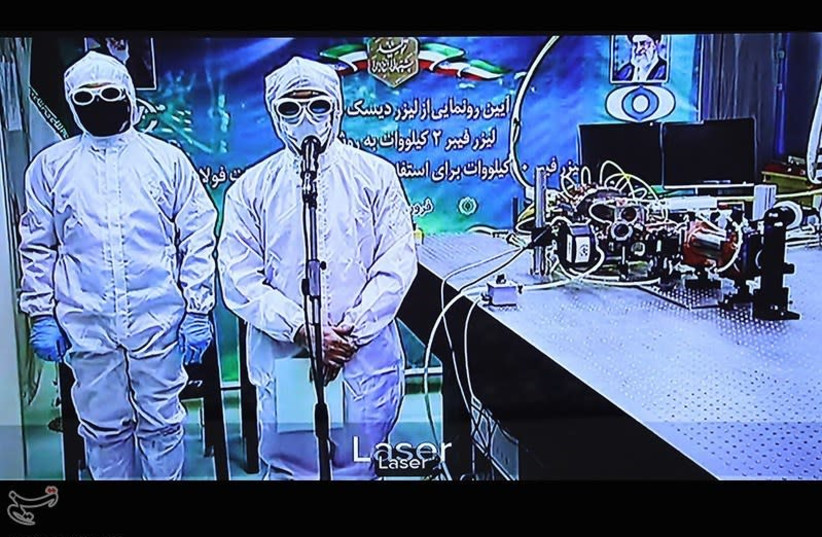Despite Iran's insistence that its nuclear activity is for peaceful purposes only, former Iranian MP Ali Motahari revealed on Sunday that Iran "from the very beginning" aimed to make a nuclear bomb, in an interview with the Iran Student Correspondents Association.
"From the very beginning, when we entered the nuclear activity, our goal was to build a bomb and strengthen the deterrent forces, but we could not maintain the secrecy of this issue, and the secret reports were revealed by a group of hypocrites," he said.
The former MP stressed that a country that wants to make peaceful use of nuclear power "never starts with enrichment," but instead first builds a reactor and then enters the field of enrichment. "To do enrichment directly creates the illusion that we want to make a bomb."
"If we, like Pakistan, could secretly make and test bombs, it would be very deterrent," Motahari told ISCA. "When we started something, we should have seen it to the end."
The former MP stressed, however, that Iranian Supreme Leader Ali Khamenei is now of the opinion that producing nuclear weapons is forbidden. The ISCA interviewer also referenced an earlier comment by Motahari that Tehran can still make a nuclear bomb, despite Khamenei's fatwa (Islamic religious decree) against such weapons, because the fatwa only forbids the use of a bomb, not the creation of one.

An official from the Iranian Atomic Energy Organization denied the statements by Motahari on Monday, saying that "the peaceful nuclear program of the Islamic Republic of Iran has never ever been militarily oriented and the statements of irresponsible people are due to ignorance or their specific political approach," according to Noor News.
"Charging our country with accusations of secrecy in nuclear activities is an action that the enemy has been pursuing for years to limit our peaceful nuclear program and has never been able to prove it," the official said.
In November, the former head of the AEOI, Fereydoun Abbasi-Davani, hinted that assassinated Iranian nuclear scientist Mohsen Fakhrizadeh had worked on a nuclear weapons program, telling IRNA that he worked with Fakhrizadeh on "nuclear defense."
Abbasi claimed that Fakhrizadeh had been targeted by Iran's enemies for years, but "when the country's all-encompassing growth came concerning satellites, missiles and nuclear weapons, and [Iran] crossed the various frontiers of knowledge, the issue became more serious for them."
During the interview with ISCA on Sunday, Motahari also spoke out against the Iran hostage crisis at the US embassy in 1979, calling it "unwise and wrong" and saying he believed that the Soviet embassy was heavily involved in an attempt to thwart the establishment of good relations between Iran and the US.
Motahari also expressed discomfort with Iran's support of Bashar Assad's regime in Syria, saying that Iran should not have entered Syria when there were protests and uprising and that "the Syrian regime did not treat its people well, they treated them very harshly and killed the people." The former MP added that Iran needed to enter Syria in order to ensure that a government that opposed Hezbollah would not come to power.
"We should not have entered then because it was a popular uprising and the next current that came to power might not be bad for the Syrian people," Motahari said. "But now we have to support Hezbollah."
